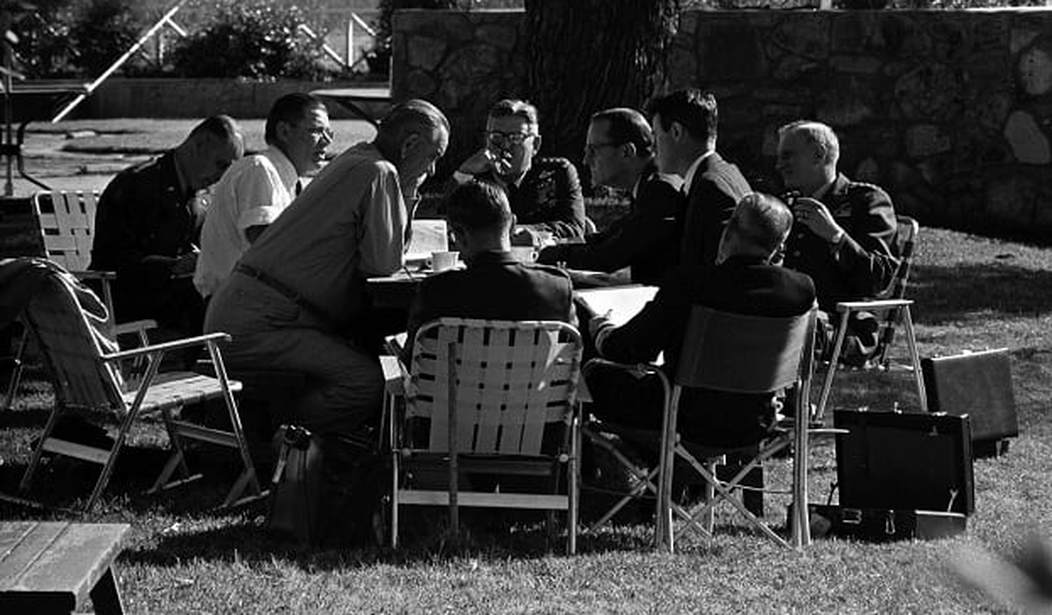 Last week it was reported that Republican Congressman Doug Lamborn was urging general/flag officers in the US Armed Forces to resign if they disagreed with Obama over policy:
Last week it was reported that Republican Congressman Doug Lamborn was urging general/flag officers in the US Armed Forces to resign if they disagreed with Obama over policy:
During a question-and-answer portion of the forum, a service member urged Lamborn to work with his congressional colleagues in both parties to “support the generals and the troops in this country despite the fact that there is no leadership from the Muslim Brotherhood in the White House.”
“You know what, I can’t add anything to that, but do let me reassure you on this,” Lamborn said. “A lot of us are talking to the generals behind the scenes, saying, ‘Hey, if you disagree with the policy that the White House has given you, let’s have a resignation.’”
“‘You know, let’s have a public resignation, and state your protest, and go out in a blaze of glory,’” Lamborn continued. “And I haven’t seen that very much, in fact I haven’t seen that at all in years.”
While I appreciate where Mr. Lamborn is coming from, what he is pursuing is a very dangerous course of action.
Throughout the Bush Administration (an era now revered a veritable Golden Age of the Republic) it became fashionable for left wing pundits to call upon military officers to resign in protest over policies with which the pundits disagreed or to actively undermine the efforts of the administration they were pledged to serve. A garden industry grew up around the idea that had the service chiefs resigned en masse that Lyndon Johnson would have been dissuaded from expanding the war in Vietnam.
To anyone who values an apolitical military the problems associated with this should be obvious. The military acts as an agent of national policy, it does not make that policy. As Dr. Peter Feaver observes in “An Agency Theory Explanation of American Civil-Military Relations during the Cold War”:
Civilian principals have the right to ask military agents to do something that ultimately proves costly, foolhardy, and even disastrous. Military agents have an obligation to advise honestly about the consequences of proposed courses of action but in the final analysis they must obey even dumb orders. This is a crucial premise and it flows directly from the principles of democratic theory under which the elected representatives of the people have the right and duty to rule.
Resignations out of policy differences should not be something that we encourage. In the first place, it is unlikely that any number of resignations would change anything. Though General Harold K. Johnson might flatter himself that he could have changed history, the sad fact is that LBJ was heavily wedded to fighting in Vietnam and the resignation of a general or six was not going to change that. More important, every president would make military decisions while looking over his shoulder and wondering about loyalties of the officer corps. This would inevitably result in partisan political considerations being the prime factor in appointment to key positions with both policy and military discipline suffering.
If Mr. Lamborn doesn’t like what Obama is doing then he needs to use the power of Congress to modify his policies. Encouraging military officers to make a spectacle of their resignation is not the way to go.













Join the conversation as a VIP Member